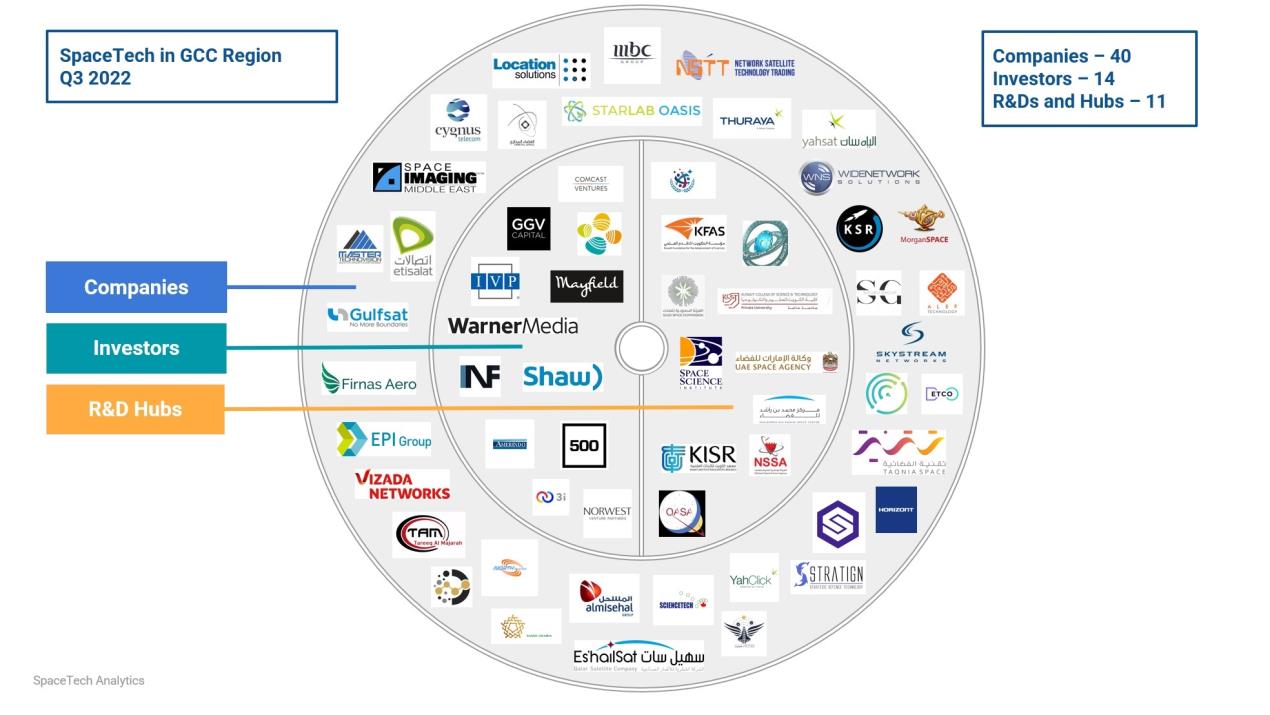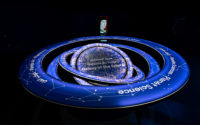UAE A Frontrunner In The GCC Space Race, New SpaceTech Analytics Report
The UAE is leading the GCC race to the stars, according to the ‘SpaceTech in the GCC’ report, which was released today by SpaceTech Analytics, a subsidiary of Deep Knowledge Group.
The UAE has already launched 16 satellites and plans to launch a new satellite as well as a constellation of small radar satellites.
The report reveals major developments across 40 space-related companies, 14 major investors, 11 R&D hubs and 37 satellites launched by the GCC region up until Q3 2022. It provides in-depth analytics on all the major aspects of GCC’s SpaceTech ecosystem.
In July 2022, the UAE Space Agency demonstrated long-term commitment to innovation with the launch of a $810+ million National Space Fund, to encourage the establishment of global partnerships in the UAE.
International co-operation
The SpaceTech report outlines several collaborative projects between GCC-based companies and international organisations. For example, AzurX – a UAE-based space investment company – has partnered with AstroAgency, a Scottish space marketing firm, to support local space businesses.
Putting the UAE on the moon
The Emirates Lunar Mission is the region’s first lunar project. The Mohammed bin Rashid Space Centre (MBRSC) mission is set to launch a lunar rover in Q4 2022.
In partnership with Japanese company, iSpace, Emiratis will build the rover – the Hakuto-R lander – at the MBRSC in Dubai, making it the first Arab nation to launch a mission to the moon.
Earth observation fuelled by climate concerns
Using commercial satellite imagery, Earth visuals reveal key information which is used in mapping, disaster management, energy and natural resource management, urban planning and development, and even security and surveillance.
The global market for commercial satellite imaging generated $5.2 billion in 2021 and is anticipated to grow at 11.5% YoY to reach $5.8 billion in 2022. With increasing governmental assistance, the industry’s market size is expected to reach $12.4 billion by 2032.
Growing concerns about climate change, environmental degradation, and disaster are some of the factors driving market growth for commercial satellite imagery globally.
Further satellite missions in the Arab World
The report outlines additional space projects that are under development in Saudi Arabia, Qatar, Kuwait, Bahrain and Oman.
Saudi Arabia, the UAE, Qatar and Bahrain all have their own fully fledged, well-functioning space agencies, with a host of projects in the pipeline.
This demonstrates the dedication to the space race across the GCC, which is setting a fine example of spacefaring nations that are committed to a promising future into the stars.
Looking ahead
The SpaceTech report reveals some of the trends that will shape future space developments in the GCC. These include the manufacture of small satellites using new technology, enhanced broadband and mobile satellite operations, increased financial support for space tourism, the transmission of high-res photographs, earth observation, R&D, and space exploration, among others.






